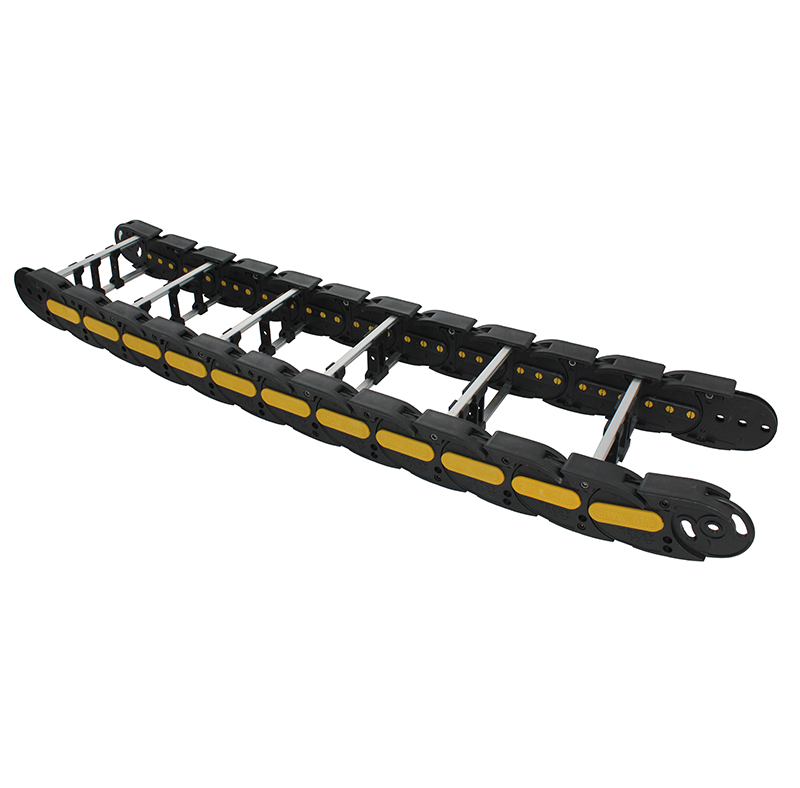Innovative Solutions for Efficient Cable Carrier Systems in Modern Industrial Applications
Cable Carrier Systems An Overview
In modern industrial applications, cable carrier systems play a crucial role in the efficient and safe management of electrical and data cables. These systems are essential in various sectors, including manufacturing, automation, robotics, and telecommunications, where moving machinery and frequent cable movement are common. This article delves into the fundamental aspects of cable carrier systems, including their components, benefits, and applications.
What are Cable Carrier Systems?
Cable carrier systems, often referred to as drag chains or cable chains, are mechanical systems designed to guide and protect flexible cables and hoses. They consist of a series of interconnected links that create a channel through which cables can move. As machinery operates and moves, the cable carrier system facilitates the safe retraction and extension of power and control lines, ensuring that cables do not get tangled, damaged, or excessively stressed.
Components of Cable Carrier Systems
A standard cable carrier system comprises several key components
1. Links The individual links are the building blocks of the chain. They come in various shapes and sizes, depending on the application requirements. Each link allows for flexibility while providing stability.
2. End Connectors These connectors serve to attach the cable carrier system to the machinery or structure. Properly securing the carrier is vital to ensure smooth operation.
3. Cables and Hoses Various cables, such as power and data transmission lines, are housed within the carrier. The carrier can also accommodate hoses for fluid delivery.
4. Guide Channels Many cable carriers feature built-in guide channels that support the cables, minimizing wear and tear as they navigate through the system.
5. Mounting Brackets These brackets enable the secure integration of the cable carrier system with existing machinery, allowing for easy installation and maintenance.
Benefits of Cable Carrier Systems
Cable carrier systems offer numerous advantages, making them indispensable in many industries
cable carrier systems

1. Protection They safeguard cables and hoses from physical damage caused by abrasion, chemicals, and environmental factors.
2. Organization By organizing cables and hoses neatly, cable carriers prevent tangling and facilitate easier maintenance. This organization leads to improved workflow and efficiency.
3. Mobility These systems allow for the flexibility and mobility required in dynamic environments. They can be installed on moving machinery, ensuring that cables are always managed correctly as the equipment operates.
4. Durability Constructed from robust materials such as plastic or metal, cable carriers are designed to withstand harsh conditions, providing long-term reliability.
5. Reduced Maintenance By protecting cables from damage, these systems reduce the frequency of cable replacements, leading to lower maintenance costs.
Applications
Cable carrier systems find applications across various fields, including
- Manufacturing In automated production lines, cable carriers manage the extensive network of cables necessary for machinery operation without hindering movement.
- Robotics For robotic arms and other automated systems, these carriers provide essential cable management, allowing for unrestricted movement and precision control.
- Telecommunications Data centers utilize cable carriers to organize and protect vast networks of data cables, ensuring reliability in high-speed information transfer.
- Construction Equipment Urban construction equipment often uses cable carriers to manage power and control cables, even in mobile heavy machinery.
Conclusion
Cable carrier systems are vital components in the management of cables and hoses in contemporary industrial settings. They provide essential protection, organization, and mobility for electrical connections, enhancing the efficiency and longevity of machinery. As industries evolve towards increased automation and complexity, the role of cable carrier systems will continue to expand, ensuring the seamless operation of electrical and data networks. The investment in high-quality cable carrier systems is a small price to pay for the significant benefits they bring to industrial operations.








